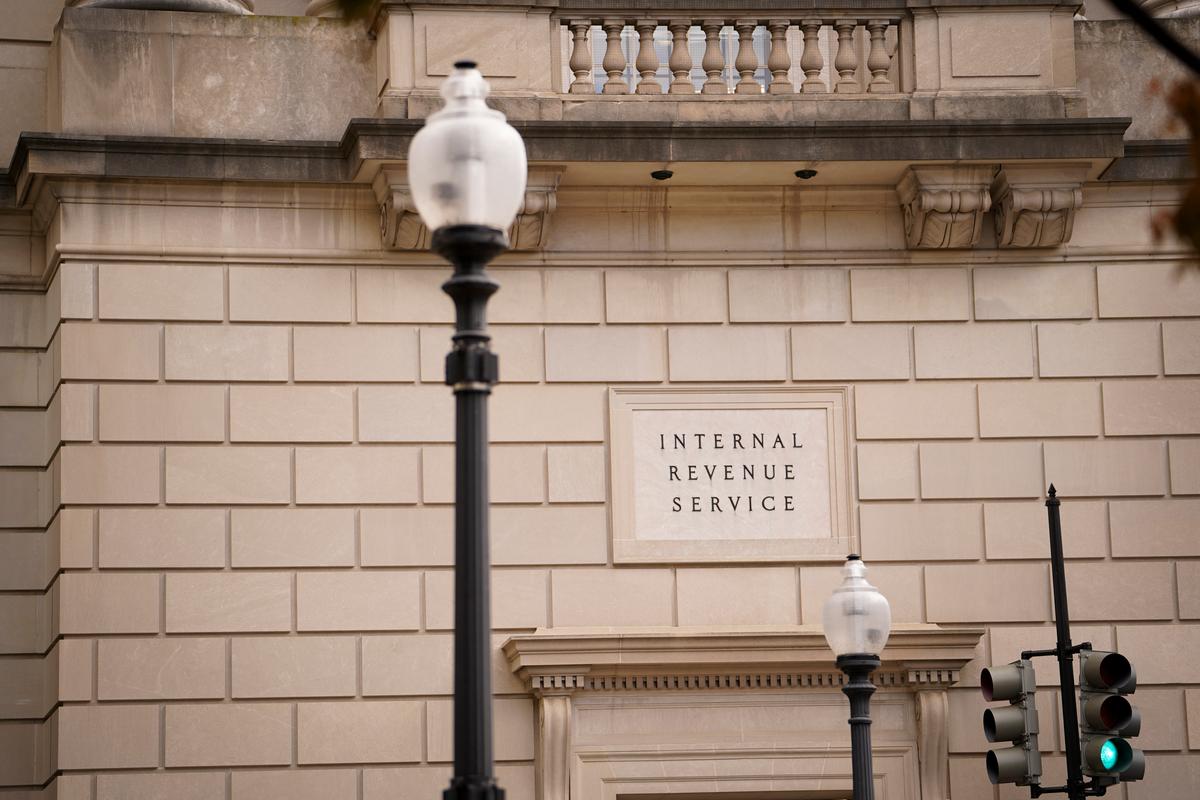
The relief is currently applicable in four counties—Davidson, Dickson, Montgomery, and Sumner.
By Naveen Athrappully | Epoch Times
The Internal Revenue Service (IRS) extended tax filing and payment due dates for some parts of Tennessee after extreme weather events impacted the region.
The tax relief applies to individuals and businesses affected by storms and tornadoes that began on Dec. 9, according to an agency press release on Friday. The measure “postpones various tax filing and payment deadlines that occurred from Dec. 9, 2023, through June 17, 2024 (postponement period). As a result, affected individuals and businesses will have until June 17, 2024, to file returns and pay any taxes that were originally due during this period.”
Currently, the relief is only applicable to areas of Tennessee designated by the Federal Emergency Management Agency (FEMA) as a disaster zone—Davidson, Dickson, Montgomery, and Sumner counties. Taxpayers from other places in the state won’t currently qualify for tax relief.
With the postponement, the June 17 deadline is now applicable to the following:
- Individual income tax returns and payments that are normally due on April 15.
- IRA and health savings account contributions made this year by eligible taxpayers.
- Quarterly estimated income tax payments, due on Jan. 16 and April 15.
- Quarterly payroll and excise tax returns, due on Jan. 31 and April 30.
- Calendar-year partnership and S corporation returns due on March 15.
- Calendar-year tax-exempt organization returns, due on May 15.
- Calendar-year corporation and fiduciary returns and payments, due on April 15.
All the above tax return filing and payments can now be done on June 17 by FEMA-designated Tennessee regions. “In addition, penalties for failing to make payroll and excise tax deposits due on or after Dec. 9, 2023, and before Dec. 26, 2023, will be abated as long as the deposits are made by Dec. 26, 2023,” the tax agency stated.
“The IRS automatically provides filing and penalty relief to any taxpayer with an IRS address of record located in the disaster area. These taxpayers do not need to contact the agency to get this relief.”
Due Date Extension
If any taxpayer from the affected region requires an extension for tax filing beyond June 17, the agency asked them to make a request electronically by April 15. Any extension requests made after April 15 can only be made on paper.
Once the IRS approves an extension request, the taxpayer will have time until Oct. 15 to file their returns. However, as far as tax payments are concerned, they must be made on June 17.
The IRS noted that some taxpayers affected by the disaster in Tennessee may not have an IRS-listed address in the disaster region. This may be due to several reasons, like moving to the area after filing their last tax return.
In such circumstances, if the taxpayer were to not pay taxes by due dates, they could receive a late filing or late payment penalty notice. To avoid this, the taxpayer should call the number listed in the notice and have the penalty removed.
“In addition, the IRS will work with any taxpayer who lives outside the disaster area but whose records necessary to meet a deadline occurring during the postponement period are located in the affected area,” the agency said.
Losses and Relief Income Impacts
Taxpayers in the disaster region and affected by the events can claim losses related to catastrophes on their income tax return, either during the year in which the event occurred or in the previous year.
In the case of Tennessee, this would mean the losses can be claimed for the 2023 tax year or the 2022 year.
Individuals who have suffered personal property losses can deduct such losses from tax returns, provided they are not covered by insurance and other reimbursements. The taxpayer should put the FEMA disaster declaration number on the returns when claiming the losses.
The IRS will waive the usual fees for affected individuals. Such taxpayers will also not be requested to provide copies of previously filed returns.
Any qualified disaster relief payments received by a taxpayer are usually excluded from the gross income.
As such, payments received from government agencies to meet any necessary or reasonable expenses related to personal, living, family, or funeral costs can be excluded from the gross income when filing taxes. Other government incomes that can be excluded include money received for repairing or rehabilitation of a home.
“Additional relief may be available to affected taxpayers who participate in a retirement plan or individual retirement arrangement (IRA),” the agency notes. “For example, a taxpayer may be eligible to take a special disaster distribution that would not be subject to the additional 10 percent early distribution tax and allows the taxpayer to spread the income over three years. Taxpayers may also be eligible to make a hardship withdrawal. Each plan or IRA has specific rules and guidance for their participants to follow.”
Back in March, the IRS announced tax relief for Mississippi residents and businesses who were affected by storms and tornadoes, extending their filing deadline.
In September, the agency declared a tax relief package for Maine and Massachusetts taxpayers who suffered due to Hurricane Lee. The IRS extended both the filing and payment deadlines.


